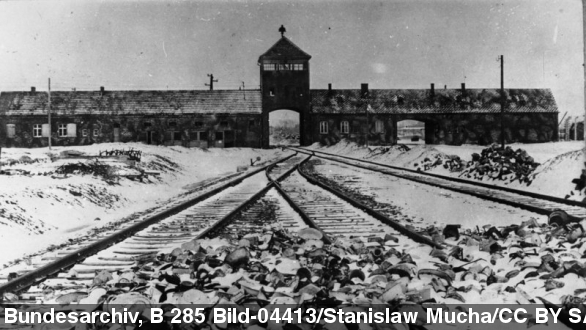January 27, 1945: The Red Army liberates Auschwitz, the biggest Nazi concentration camp. 200,000 people are freed. The world vowed, "Never again." But today, genocides and mass atrocities continue. (Video via USSR)
Syria is barely recognizable. In less than four years, 200,000 people have died. Entire neighborhoods are gone. Half the population has been uprooted. (Video via Aleppo Media Centre)
The conflict began as an uprising against Syrian President Bashar al-Assad. It's since turned into a bloody civil war. (Video via YouTube / Syrian Days Of Rage)
The United Nations says it has "massive evidence" the Assad regime is responsible for "crimes against humanity," which the government denies. (Video via YouTube / سورية المستقبل)
Even though the Rohingya people have lived in Myanmar for centuries, they are stateless. (Video via Voice of America)
The Buddhist government refuses to give the 1.3 million Rohingya Muslims citizenship, accusing them of immigrating to the country illegally from neighboring Bangladesh. (Video via Al Jazeera)
As a result, the Rohingya people are denied access to services like health care and education.
Because sectarian violence destroyed their homes, 140,000 Rohingyas now live in camps, forbidden to leave. The conditions are deplorable. (Video via Euronews)
South Sudan gained independence in 2011 after decades of civil war. (Video via Refugees International)
But a power struggle between the country's two tribes, the Dinka and Nuer, has thrust South Sudan into a new war. At least 50,000 people have died in the past year.
The United Nations says the conflict has all the hallmarks of a genocide: systematic killings of civilians, rape and forcing children to become soldiers. Both the government and rebels have committed "mass atrocities."
"The opposite of love is not hate; it's indifference," said Elie Wiesel, Auschwitz survivor and human rights activist. (Video via USSR)
This video includes images from Getty Images and music from Chris Zabriskie / Cylinder Four.


